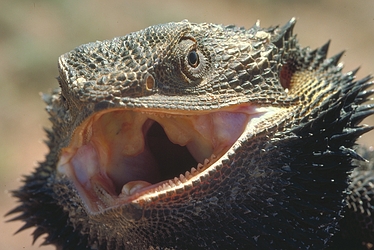What is Brumation in a Bearded Dragon? A Beginner's Guide
What is Brumation in a Bearded Dragon?
Brumation is a period of dormancy in cold-blooded animals, such as bearded dragons, that allows them to survive during the colder months. This is a natural process that is triggered by environmental factors, including changes in temperature and daylight hours. During brumation, bearded dragons will become less active, eat less frequently, and may even appear to be sleeping for extended periods of time.

When Does Brumation Occur?
Brumation typically occurs during the winter months, when temperatures are cooler and daylight hours are shorter. The timing of brumation can also vary depending on the individual bearded dragon, their age, and their overall health. However, most bearded dragons will enter brumation between November and March.

Is Brumation Normal?
Yes, brumation is a normal and necessary process for bearded dragons. It allows them to conserve energy and survive through the colder months when food is scarce. It’s important to note that not all bearded dragons will go through brumation, and some may only go through a partial brumation.

How to Prepare for Brumation?
In preparation for brumation, it’s essential to ensure that your bearded dragon is healthy and has enough body fat to sustain them through the dormant period. You should also make environmental changes, including reducing the temperature and daylight hours in their enclosure, to help trigger brumation. It’s crucial to provide a comfortable and safe environment for your bearded dragon during the brumation period.

What to Do During Brumation?
During brumation, it’s best to leave your bearded dragon alone as much as possible. They may not want to eat or drink during this time, so you should remove any uneaten food and provide fresh water regularly. It’s also essential to monitor their weight to ensure that they’re not losing too much body fat.

When Will My Bearded Dragon Wake Up from Brumation?
The length of brumation can vary, depending on the individual bearded dragon, their age, and their overall health. Most bearded dragons will emerge from brumation between February and April, but some may come out earlier or later. It’s essential to monitor your bearded dragon closely as they transition out of brumation to ensure that they’re healthy and eating properly.

Conclusion
In summary, brumation is a normal process for bearded dragons that allows them to survive through the colder months. As a pet owner, it’s essential to be aware of brumation and make the necessary preparations to ensure that your bearded dragon is healthy and safe during this time. If you have any concerns about brumation or your bearded dragon’s health, be sure to consult with a veterinarian who has experience working with reptiles.
